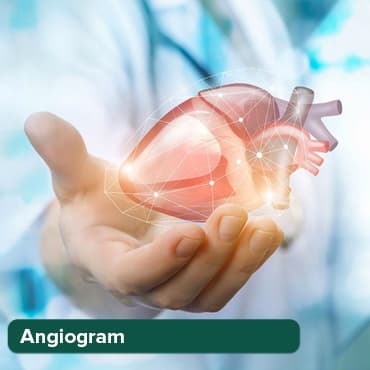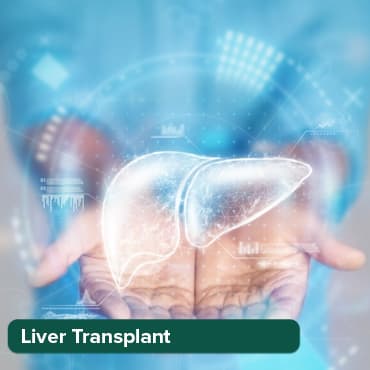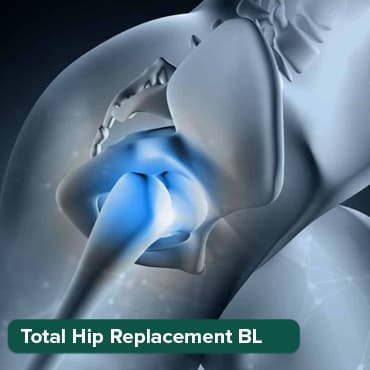
ለጉበት ካንሰር የጨረር ሕክምና፡ ዕጢዎችን በትክክል ማነጣጠር
24 Nov, 2023
 Healthtrip ቡድን
Healthtrip ቡድንLiver cancer is a relentless adversary, affecting millions globally. Amidst this health challenge, there emerges a beacon of hope—Radiation Therapy. This groundbreaking treatment is reshaping the landscape of liver cancer treatment, precisely honing in on tumors with unprecedented accuracy. In this exploration, we unravel the intricacies of Radiation Therapy for liver cancer, unveiling its mechanisms, benefits, and the profound impact it carries in the fight against this formidable disease.

Who Needs Radiation Therapy for Liver Cancer
Liver cancer can develop in individuals of any age, but it is more commonly diagnosed in older adults. Certain risk factors increase the likelihood of developing liver cancer, and individuals with these risk factors may benefit from radiation therapy:
1. Chronic Liver Diseases: Long-term liver conditions, such as cirrhosis resulting from alcohol abuse or non-alcoholic fatty liver disease, elevate the risk of liver cancer. Individuals with chronic liver diseases may be candidates for radiation therapy, particularly if cancer develops.
2. Viral Hepatitis: Chronic infection with hepatitis B or C significantly increases the risk of liver cancer. Regular monitoring and screenings, including imaging studies, may be recommended for individuals with viral hepatitis to detect liver cancer at an early stage when treatment options, including radiation therapy, may be more effective.
3. Family History of Liver Cancer: A family history of liver cancer can indicate a genetic predisposition to the disease. Individuals with close relatives who have had liver cancer may be advised to undergo regular screenings, allowing for the early detection of any potential tumors.
4. Previous Liver Cancer Treatment: Patients who have undergone previous treatments for liver cancer, such as surgery or chemotherapy, may be recommended for radiation therapy as part of a comprehensive treatment plan to target any remaining cancer cells.
5. Advanced Liver Cancer: In some cases, radiation therapy may be used as a palliative treatment for advanced liver cancer. While it may not cure the disease at this stage, it can help manage symptoms and improve the quality of life.
በ ውስጥ በጣም ታዋቂ ሂደቶች ሕንድ
የአትሪያል ሴፕታል ጉድለት (AS
እስከ 80% ቅናሽ
90% ደረጃ ተሰጥቶታል።
አጥጋቢ

ኮርኒሪ አንጎግራም እና ፐርኩታኔ
እስከ 80% ቅናሽ
90% ደረጃ ተሰጥቶታል።
አጥጋቢ

ኮርኒሪ አንጎግራም CAG/ CAG
እስከ 80% ቅናሽ
90% ደረጃ ተሰጥቶታል።
አጥጋቢ

የጉበት ትራንስፕላንት
እስከ 80% ቅናሽ
90% ደረጃ ተሰጥቶታል።
አጥጋቢ

ጠቅላላ የሂፕ ምትክ-ቢ/ሊ
እስከ 80% ቅናሽ
90% ደረጃ ተሰጥቶታል።
አጥጋቢ

Why it is needed?
Radiation therapy for liver cancer is performed to:
1. Destroy Tumors: Delivering precise doses of radiation to the tumor aims to destroy cancer cells within the liver.
2. Precision Targeting: Advanced techniques ensure accurate targeting, minimizing damage to healthy tissues.
3. Comprehensive Treatment: Often part of a comprehensive treatment plan, it may be used alone or alongside surgery and chemotherapy.
4. Palliative Care: In advanced cases, it can help manage symptoms, alleviate pain, and improve quality of life.
5. Post-Treatment Eradication: Targets and eliminates residual cancer cells after other interventions.
6. Risk Reduction: For high-risk individuals, it can be a preventive measure or early treatment.
7. Minimize Side Effects: Precision targeting reduces damage to healthy organs, minimizing side effects and preserving overall health.
Precision in Action – How Radiation Therapy Works:
Radiation therapy for liver cancer involves the use of high doses of radiation to target and destroy cancer cells. Precision is crucial in this process to maximize the impact on cancer cells while minimizing damage to surrounding healthy tissues. Here's how precision is achieved in radiation therapy:
1. Image-Guided Radiation Therapy (IGRT): IGRT uses advanced imaging techniques, such as CT scans or MRI, to precisely visualize the tumor in real-time during treatment. This allows for adjustments to be made to the position of the patient and the radiation beams, ensuring accurate targeting of the cancer.
2. Stereotactic Body Radiation Therapy (SBRT): SBRT is a highly precise form of radiation therapy that delivers intense, focused doses of radiation to the tumor from multiple angles. This method is particularly effective for small tumors and offers increased accuracy in targeting.
3. Customized Treatment Plans: The radiation oncology team creates individualized treatment plans based on the specific characteristics of the liver cancer. This includes determining the optimal dosage, the number of treatment sessions, and the angles from which radiation beams will be delivered.
4. Organ-Sparing Techniques: Advanced technologies enable the precise sparing of nearby healthy organs, such as the kidneys or gastrointestinal tract, reducing the risk of collateral damage during treatment.
Overall, precision in radiation therapy plays a pivotal role in enhancing the effectiveness of the treatment while minimizing potential side effects, contributing to better outcomes for individuals with liver cancer.
Types of Radiation Therapy for Liver Cancer:
There are different types of radiation therapy used for liver cancer treatment:
1. External Beam Radiation Therapy (EBRT): This is the most common type of radiation therapy for liver cancer. It delivers radiation from outside the body using a machine, targeting the tumor with high precision.
2. Stereotactic Body Radiation Therapy (SBRT): SBRT delivers high doses of radiation to the tumor from multiple angles with extreme accuracy. It is often used for small liver tumors.
3. Radioembolization: This involves the injection of tiny radioactive beads directly into the blood vessels that supply the tumor. This type of radiation therapy is often used for advanced liver cancer or when surgery is not an option.
What to Expect and what happens in Radiation Therapy
Before Starting Radiation Therapy:
1. Thorough Evaluation: Before initiating radiation therapy for liver cancer, patients undergo a comprehensive evaluation. This includes a detailed medical history, physical examination, and various imaging studies (such as CT scans, MRIs, or PET scans) to precisely assess the size, location, and characteristics of the tumor.
2. Simulation and Treatment Planning: A crucial step in the process involves simulation and treatment planning. During simulation, patients may undergo a CT scan in the same position they will be in during treatment. This helps create a detailed map of the treatment area, allowing for accurate targeting of the tumor while minimizing exposure to surrounding healthy tissues.
3. Individualized Treatment Plan: Based on the evaluation and simulation, the radiation oncology team develops an individualized treatment plan. This plan outlines the number of treatment sessions, the dosage of radiation, and the angles from which the radiation beams will be delivered.
During Radiation Therapy:
- Painless Treatment Sessions: The actual radiation therapy sessions are typically painless. Patients lie on a treatment table, and the radiation machine is adjusted to deliver precise beams to the targeted area. The radiation oncology team monitors the process from a control room.
- Minimal Sensation: Patients may not feel anything during the administration of radiation. The experience is comparable to having an X-ray. It's essential to remain still during the treatment to ensure accurate delivery of radiation to the tumor.
- Duration and Frequency: The number of sessions and the overall duration of treatment vary based on the type and stage of liver cancer. Some patients may undergo treatment daily for several weeks, while others may have a shorter, more intense course of treatment.
Benefits of Precision Targeting in Radiation Therapy
Benefits of Precision Targeting: Precision targeting in radiation therapy for liver cancer offers several benefits:
1. Minimized Side Effects: Precise targeting allows for the delivery of high doses of radiation to the tumor while minimizing damage to healthy surrounding tissues. This helps reduce the risk of side effects.
2. Improved Effectiveness: By accurately targeting the tumor, radiation therapy can be more effective in destroying cancer cells and shrinking tumors.
3. Preservation of Healthy Tissues: Precision targeting helps spare healthy organs, preserving their function and minimizing long-term complications.
4. Enhanced Treatment Planning: Advanced imaging technologies aid in precise treatment planning, ensuring that the radiation is delivered to the tumor with the highest accuracy.
Potential Side Effects:
1. Fatigue: Fatigue is a common side effect of radiation therapy. It may gradually accumulate over the course of treatment. Adequate rest, proper nutrition, and gentle exercise can help manage fatigue.
2. Nausea: Some patients may experience nausea, particularly if the liver is near the stomach. Anti-nausea medications can be prescribed to alleviate this side effect.
3. Skin Changes: The skin in the treated area may become irritated, red, or more sensitive. It's important to follow the skincare recommendations provided by the healthcare team and avoid exposing the treated area to direct sunlight.
4. Other Side Effects: Depending on the location and extent of the treatment, patients may experience other side effects such as loss of appetite or changes in bowel habits. These effects are closely monitored, and supportive care measures are implemented to manage them.
Post-Treatment Follow-Up:
After completing radiation therapy, patients will have follow-up appointments to assess treatment effectiveness and monitor for any lingering side effects. Imaging studies may be repeated to evaluate the response of the tumor to the treatment. The healthcare team will provide guidance on post-treatment care, including any necessary lifestyle adjustments or ongoing supportive measures.
It's crucial for patients to communicate openly with their healthcare team about any symptoms or concerns during and after radiation therapy, as timely intervention can help manage side effects and ensure the best possible outcome.
In summary, precision-targeted radiation therapy emerges as a transformative force in liver cancer treatment. The marriage of technological precision and medical expertise not only offers hope to patients but represents a paradigm shift in oncology. As we navigate this frontier, the commitment to refining these techniques ensures a future where the battle against liver cancer is fought with unprecedented accuracy and compassion, promising brighter outcomes and a renewed sense of optimism for those facing this challenging diagnosis.
የጤንነት ሕክምናዎች
ለራስህ ዘና ለማለት ጊዜ ስጥ
በጣም ዝቅተኛ ዋጋዎች የተረጋገጠ!

በጣም ዝቅተኛ ዋጋዎች የተረጋገጠ!





